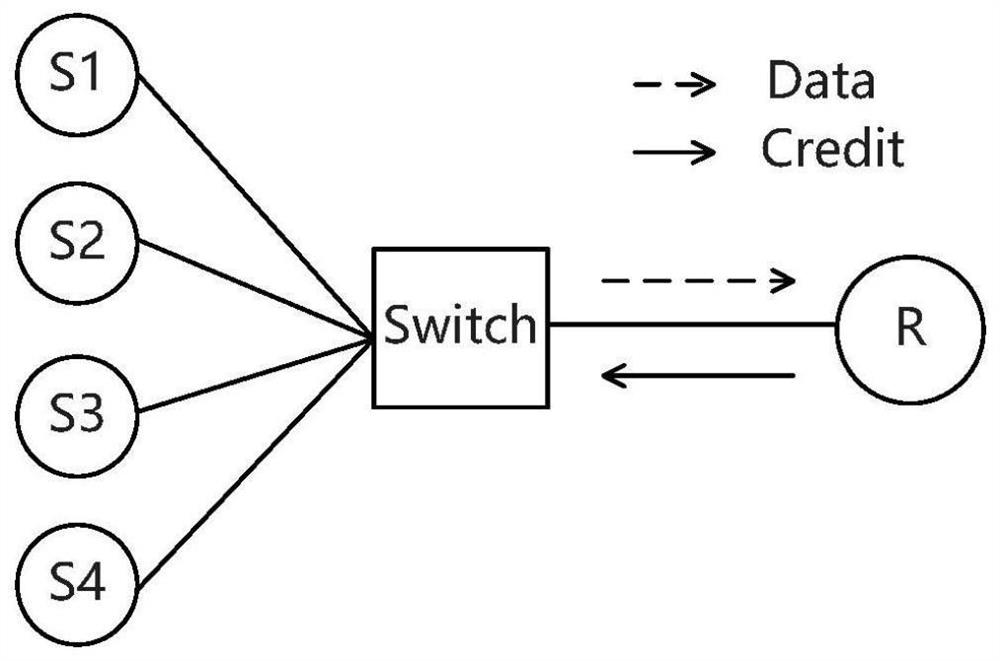Credit Packet-Based Proactive Transfer Method for Data Centers
A transmission method and data packet technology, which is applied in the field of computer network system and network data transmission, can solve problems such as damage to transmission performance, achieve the effects of reducing transmission delay of short streams, giving priority to transmission of powerful short streams, and improving performance
- Summary
- Abstract
- Description
- Claims
- Application Information
AI Technical Summary
Problems solved by technology
Method used
Image
Examples
Embodiment Construction
[0033] In order to better understand the contents of the present invention, an example is given here.
[0034] Credits are used to schedule data transmission within link capacity, including single-hop credits, end-to-end credits, and hop-by-hop credits. Single-hop credit refers to the transfer of credit between two devices, and it is usually deployed at the link layer to ensure that data between two switches is not lost. The active transmission protocol adopts the end-to-end credit mechanism, which schedules the data transmission between the sending end and the receiving end, such as pHost, Homa, and NDP. This credit can only prevent congestion at the receiving end, because it only feeds back information about the receiving rate of the host. Hop-by-hop credits can feed back the maximum data transmission rate of each hop from the receiving end to the sending end, and further prevent congestion at each hop by limiting the sending end to send data within the rate range, such as ...
PUM
 Login to View More
Login to View More Abstract
Description
Claims
Application Information
 Login to View More
Login to View More - Generate Ideas
- Intellectual Property
- Life Sciences
- Materials
- Tech Scout
- Unparalleled Data Quality
- Higher Quality Content
- 60% Fewer Hallucinations
Browse by: Latest US Patents, China's latest patents, Technical Efficacy Thesaurus, Application Domain, Technology Topic, Popular Technical Reports.
© 2025 PatSnap. All rights reserved.Legal|Privacy policy|Modern Slavery Act Transparency Statement|Sitemap|About US| Contact US: help@patsnap.com



